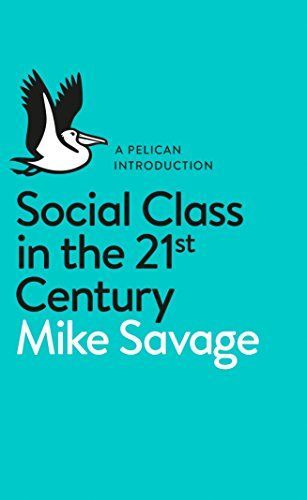
Social Class in the 21st Century
Why does social class matter more than ever in Britain today? How has the meaning of class changed? What does this mean for social mobility and inequality? Mike Savage is Professor of Sociology at the London School of Economics where he is also co-Director of the International Inequalities Institute. He is recognised as a leading international authority on social class, with his recent books including Identities and Social Change in Britain Since 1940, He has written this book in collaboration with the team of sociological experts linked to the Great British Class Survey: Niall Cunningham, Fiona Devine, Sam Friedman, Daniel Laurison, Lisa McKenzie, Andrew Miles, Helene Snee and Paul Wakeling.
Reviews
Celine Nguyen ✿@celinenguyen